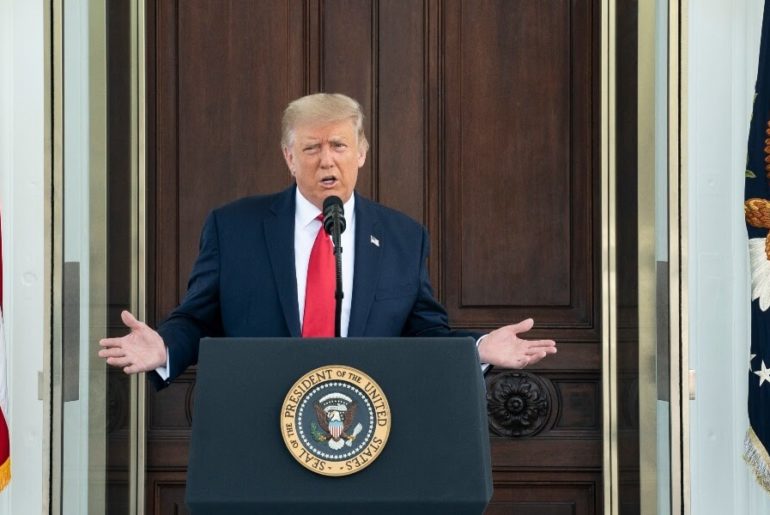The U.S. has been eagerly following every beat of the storyline of President Donald Trump’s hospitalization, since he was admitted to Walter Reed Medical Center because of his coronavirus symptoms on Friday, October 2.
Here are other world leaders that have been diagnosed with COVID-19 and how it has changed their approach to the disease:
Jair Bolsonaro
Jair Bolsonaro, Brazil’s president, was always skeptical of the severity of the virus. He was known for his relaxed social distancing rules and for repeatedly downplaying its seriousness.
Back in March, Bolsonaro had assured its people that he “wouldn’t feel anything” if infected with the virus. However, by July, the Brazilian president was diagnosed with COVID-19 and was presenting mild symptoms, including a fever.
After recovering from it, Bolsonaro became a big proponent of the anti-malaria drug hydroxychloroquine. However, he maintained his relaxed views on the virus, and when asked about the high number of Brazilians that had died because of COVID, he infamously responded “people die every day from lots of things, and that’s life.”
Boris Johnson
The United Kingdom’s prime minister, Boris Johnson, was diagnosed with COVID-9 back in March. Johnson actually ended up spending a couple of days in the hospital, as his symptoms were severe and included trouble breathing.
Johnson was also known to downplay the virus when it first hit the UK, even bragging about having “shook hands” with coronavirus patients weeks before his diagnosis. However, the prime minister’s view on the virus changed after a gruesome stint in the hospital, where Johnson said “things could have gone either way.”
Even though Britain’s testing system is underdeveloped, Johnson has taken it personally to find ways to survive the crisis. Now, he says, he is focusing on improving the UK after the pandemic.
“We’ve been through too much frustration and hardship just to settle for the status quo and to think that life can go on as it was before the plague,” he told his party’s annual conference, held virtually this year.
“It will not, because history teaches us that events of this magnitude, wars, famines, plagues, events that affect the vast bulk of humanity, as this virus has, they don’t just come and go…We cannot now define the mission of this country as merely to restore normality. That isn’t good enough.”
Jeanine Añez
Bolivia’s interim president, Jeanine Añez, tested positive for coronavirus back in July. At least seven ministers tested positive, including the finance, health and foreign ministers, and the wave of the disease was enough to prompt Añez to postpone the presidential elections, for which she is one of the candidates, from September to October.
Añez did not suffer any symptoms from the disease, but the coronavirus outbreak, paired with the government crisis Bolivia is going through, has positioned Bolivia as the world’s third-highest per capita coronavirus death toll.
Alejandro Giamattei
Guatemalan president, Alejandro Giamattei, announced in September that he had tested positive for coronavirus.
“My symptoms are very mild. Up to now, I have body aches, it hurt more yesterday than today, like a bad cold,” the president said. “I don’t have a fever, I have a bit of a cough.”
The president is currently in stable condition and currently “working from home.” The diagnosis comes a week after Guatemala reopened its borders after a strict six-month closure.

